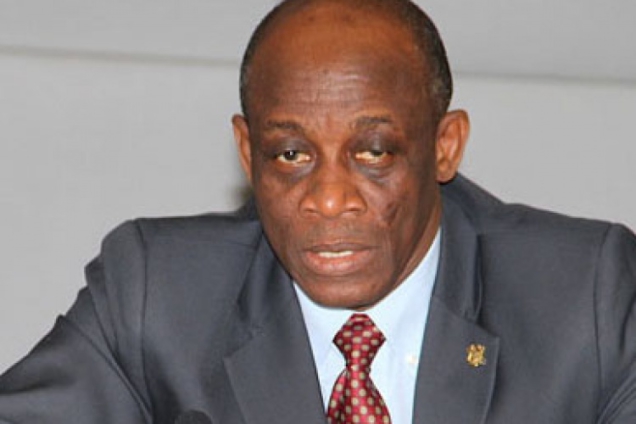Former Finance Minister, Seth Terkper, has reiterated his advice to government not to engage in what appears to be another "fiscal offset" in the 2023 budget, similar to what occurred in the government's 2017 budget.
In this context, Mr Terkper has called on government to disclose its plan for dealing with a large¢ 77 billion pipeline of arrears and contracts in the 2021 Budget Performance Report.
He noted that a similar plan was used to deal with the "single spine" wage arrears in 2020.
He has argued that given that budget overruns are at the core of most debt challenges, transparency and accountability in government finances are crucial for securing an IMF programme.
Moreover, they are also needed for sustainable economic growth and development.
Mr Terkper has argued that the treatment of the banking and energy sector bailout costs as memoranda items, rather than adding them to the country's deficit and public debt stock, create a false impression of fiscal consolidation.
The former Minister stated that this practice by government resulted in the rapid financial market rating downgrades of the country's sovereign bonds and eventual debt default, with the deficit revised upwards to 7% and 7.2% for 2018 and 2019 respectively when the IMF and ratings agencies adjusted Ghana’s fiscal deficit and public debt figures.
Mr Terkper recalled that in 2017, the incoming Akufo-Addo administration accused the John Mahama administration of overlooking arrears of about GH¢7 billion.
However, only about GH¢2 billion was carried forward to the 2017 fiscal year after an apparent offset of GHS 5bn against total expenditures.
At the time, Mr Terkper opposed the move in various articles and interviews.
In a similar move, Mr Terkper notes that the 2023 budget shows another apparent offset of GHS 22bn that also appears to reduce the deficit from about GH¢60 billion to approximately GH¢38 billion.
As with the 2.3% reduction in the budget or fiscal deficit in 2017, the repetition of the fiscal move results in a "paper" reduction of 3.7% of GDP.
The former minister has warned that this practice by government creates a false impression of fiscal prudence, which is unsustainable in the long term.
He has argued that such moves lead to a lack of transparency and accountability in government finances, which can lead to financial instability and economic turmoil.
Mr Terkper's concerns reflect a broader need for transparency and accountability in government finances in Ghana.
The government must address these concerns to build trust with its citizens, investors, and international partners.
Failure to do so could lead to further economic instability and harm the country's long-term economic prospects.
Latest Stories
-
Sean Combs is shown assaulting former girlfriend Cassie in 2016 surveillance video
7 mins -
Cedi depreciation: We have complained a lot but is anybody listening? – Dr Otoo
44 mins -
Rev. Dr Lawrence Tetteh to march to Jubilee House over anti-gay bill delay
50 mins -
Throwing cash in the air – Nigeria’s wedding dilemma
56 mins -
I’ve lost a friend and a strong supporter – Bawumia eulogises John Kumah
1 hour -
I am the most expensive artiste in terms of production – Scott Evans claims
2 hours -
My time will come but it is not this year – Scott Evans on TGMA
2 hours -
NDC launches fundraiser campaign in Volta Region
2 hours -
Why call for Kissi Agyebeng’s removal when there are alternatives? – Dr Osae-Kwapong to Amidu
2 hours -
Former Deputy AG Joseph Kpemka appointed Deputy MD for BOST
2 hours -
Celebration of debts with Kenkey parties brought our economy to this low level – Suhuyini
2 hours -
Amidu’s petition strengthening Akufo-Addo’s desire to remove independent officeholders – Suhuyini
3 hours -
I was so proud when Afronita and Abigail danced to ‘Antenna’ at Britain’s Got Talent – Fuse ODG
4 hours -
Martin Amidu can’t judge Kissi Agyebeng by his ‘low standards’ – Suhuyini
4 hours -
GOC President denies not fulfilling promise to Deborah Acquah after 2022 Commonwealth Games
4 hours

